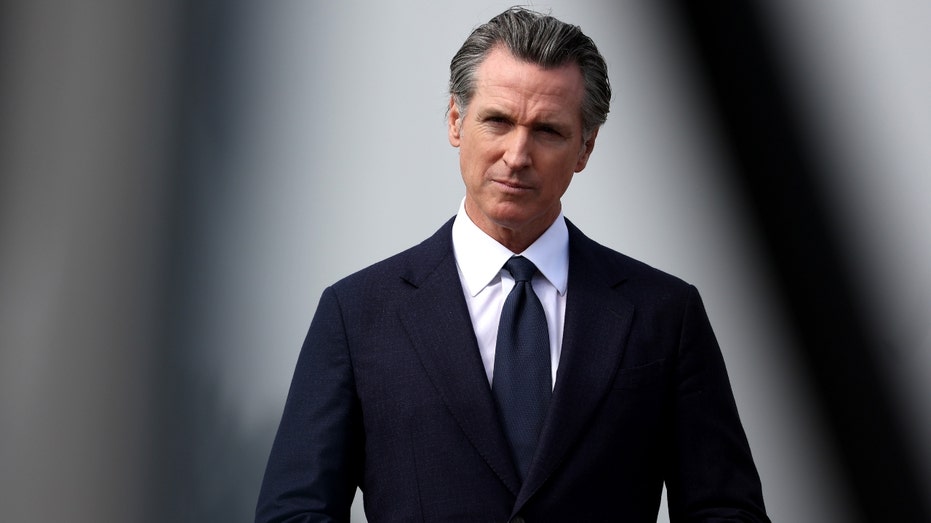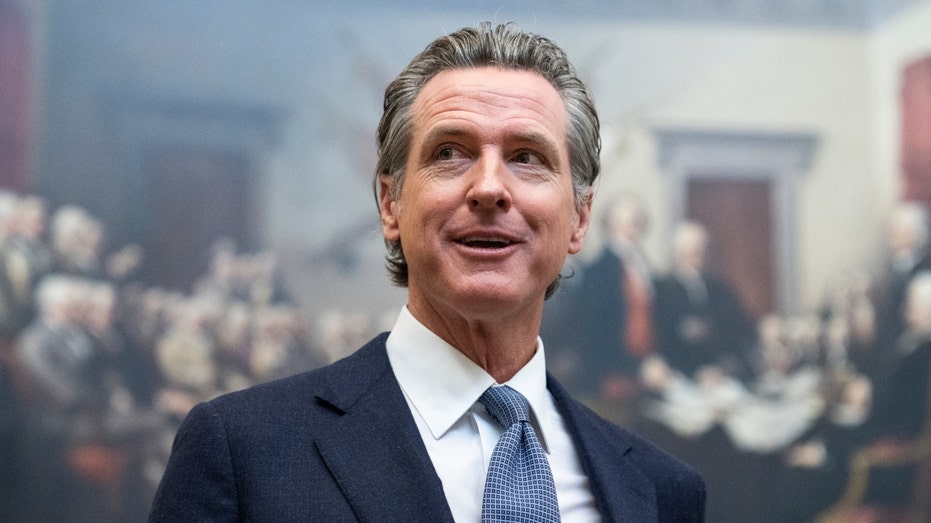Newsom vetoes bill that would've allowed striking workers to receive unemployment benefits
The fund used by the state to provide unemployment benefits is projected to reach nearly $20 billion in debt by the end of the year
Hannity to Newsom on 2024: Will you ever accept the Democratic nomination?
From In-N-Out Burger to California's gas prices, Gov. Gavin Newsom, D-Calif., discusses key moments from the second GOP debate at the Reagan Library on 'Hannity.'
California Gov. Gavin Newsom, a Democrat, vetoed a bill Saturday that would have allowed workers who left their jobs to strike amid labor negotiations to receive unemployment benefits.
The legislation was introduced during a five-month-long Hollywood writers strike that set back the entertainment industry. The strike ended last week after Writers Guild of America union board members approved a contract agreement with studios. Hollywood actors and California hotel workers are continuing their respective labor strikes. Many of these striking workers have gone months without pay.
If the bill had become law, workers who were on strike for at least two weeks would have been allowed to receive unemployment checks from the state, which can be as much as $450 per week. Workers who lost their jobs through no fault of their own are typically the only ones eligible for these benefits.
Newsom, who often benefits from campaign contributions from labor unions, said in a statement announcing his rejection of the bill that he supports workers involved in labor strikes but that the fund used by the state to provide unemployment benefits is projected to reach nearly $20 billion in debt by the end of the year.
MONTHS-LONG HOLLYWOOD WRITERS STRIKE OVER AFTER CONTRACT WITH STUDIOS APPROVED

California Gov. Gavin Newsom vetoed a bill Saturday that would have allowed workers who left their jobs to strike amid labor negotiations to receive unemployment benefits. ((Photo by Justin Sullivan/Getty Images) / Getty Images)
"Now is not the time to increase costs or incur this sizable debt," he wrote.
The fund the state uses to pay unemployment insurance (UI) benefits is already more than $18 billion in debt after it ran out of money and was forced to borrow from the federal government during the coronavirus pandemic when Newsom ordered most businesses to close, causing a drastic surge in unemployment.
Massive amounts of fraud that cost the state billions of dollars also hurt the fund's resources.
"California employers fund UI benefits through contributions to the state's UI Trust Fund on behalf of each employee," Newsom said. "The UI financing structure has not been updated since 1984, which has made the UI Trust Fund vulnerable to insolvency."
"Any expansion of eligibility for UI benefits could increase California's outstanding federal UI debt projected to be nearly $20 billion by the end of the year and could jeopardize California's Benefit Cost Ratio add-on waiver application, significantly increasing taxes on employers," he continued. "Furthermore, the state is responsible for the interest payments on the federal UI loan and to date has paid $362.7 million in interest with another $302 million due this month."
WRITERS GUILD OF AMERICA REACHES TENTATIVE AGREEMENT WITH HOLLYWOOD STUDIOS, SUSPENDS PICKETING

Newsom said the fund used by the state to provide unemployment benefits is projected to reach nearly $20 billion in debt by the end of the year. ((Tom Williams/CQ-Roll Call, Inc via Getty Images) / Getty Images)
GET FOX BUSINESS ON THE GO BY CLICKING HERE
Labor unions argued that the number of workers on strike for more than two weeks is so low that allowing them to receive unemployment would not make a significant impact on the state’s unemployment fund, according to The Associated Press.
The bill's author, Democratic state Sen. Anthony Portantino, said in the analysis of the legislation that only two of the 56 strikes in California over the last decade have lasted more than two weeks.
Unemployment benefits in the state have also increased, and California's Legislative Analyst’s Office has predicted benefit payments will exceed tax collections by $1.1 billion this year.
"I have deep appreciation and respect for workers who fight for their rights and come together in collective action," Newsom said in his statement. "I look forward to building on the progress we have made over the past five years to improve conditions for all workers in California."





















